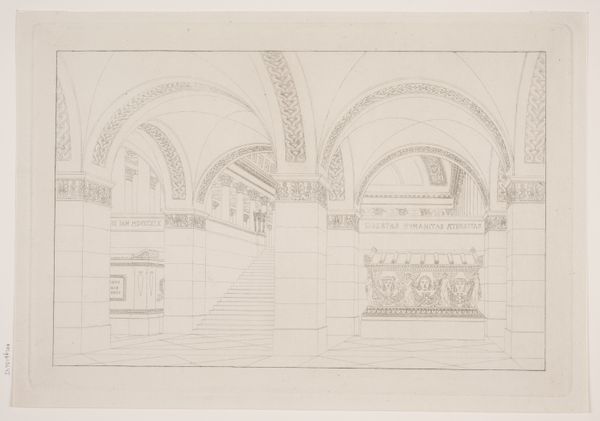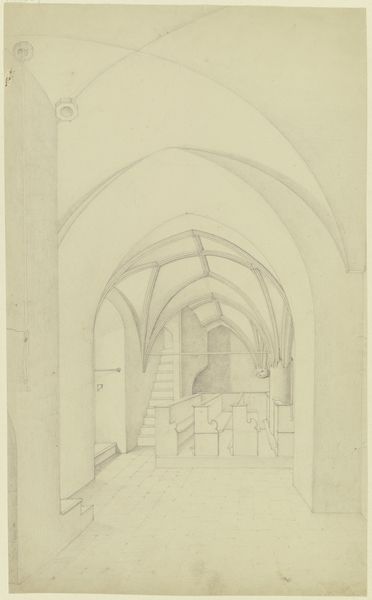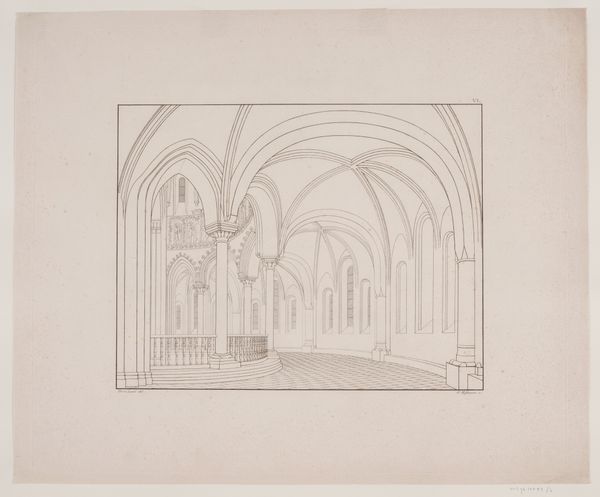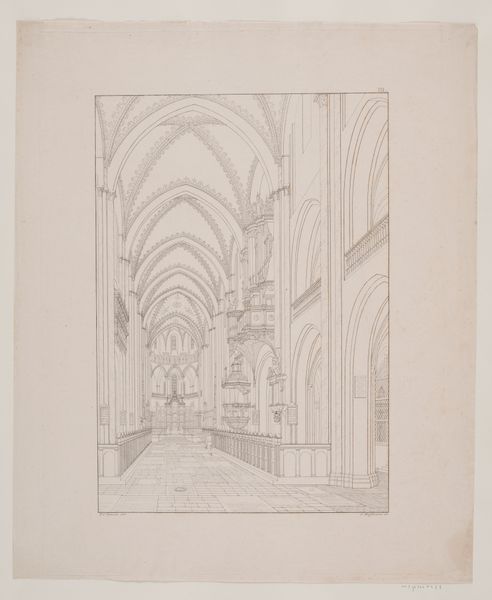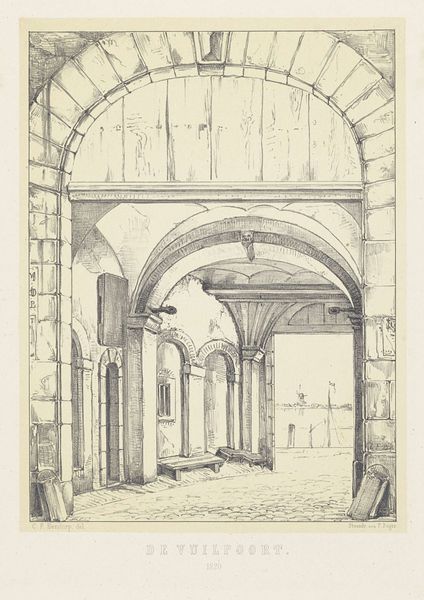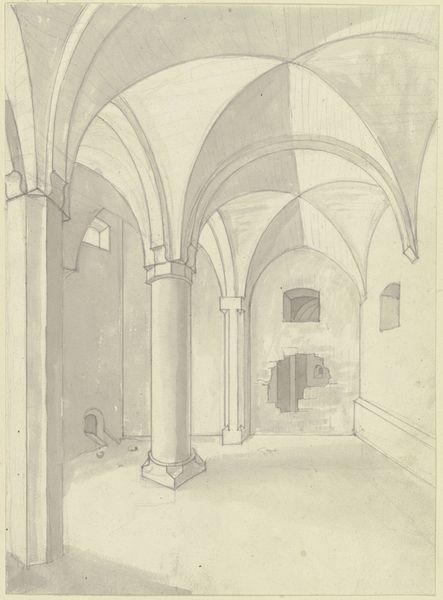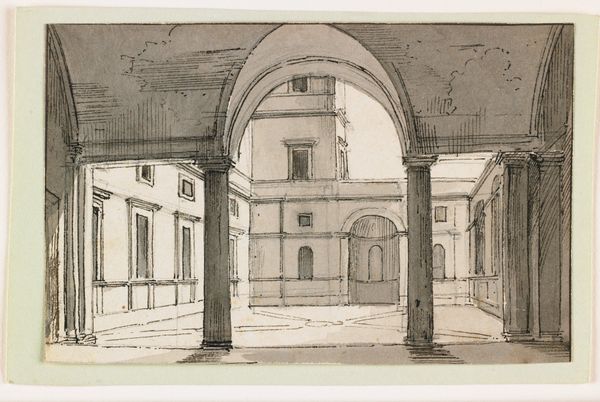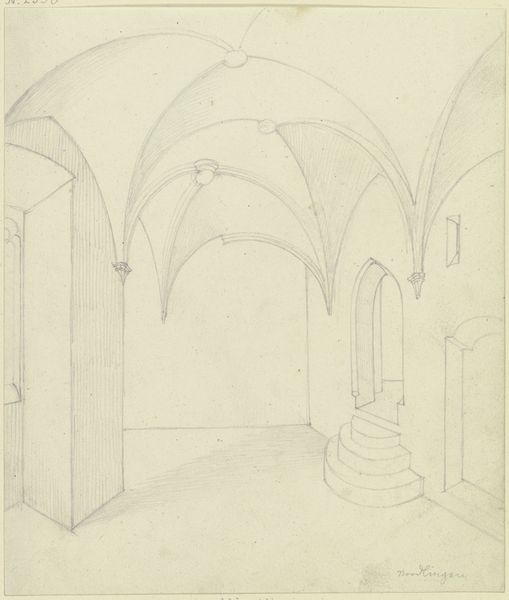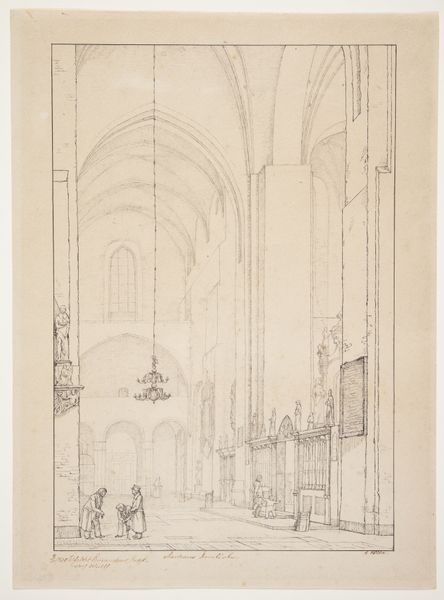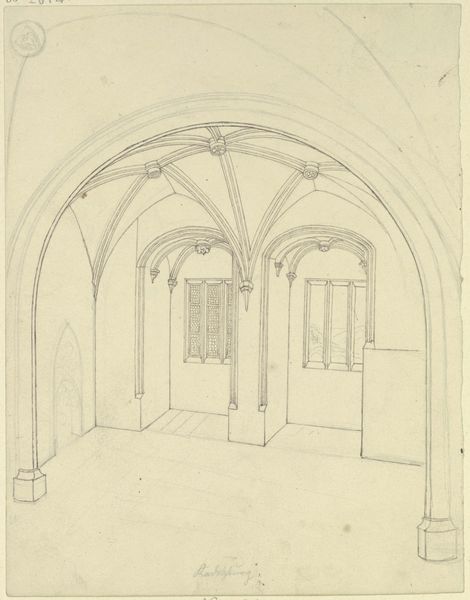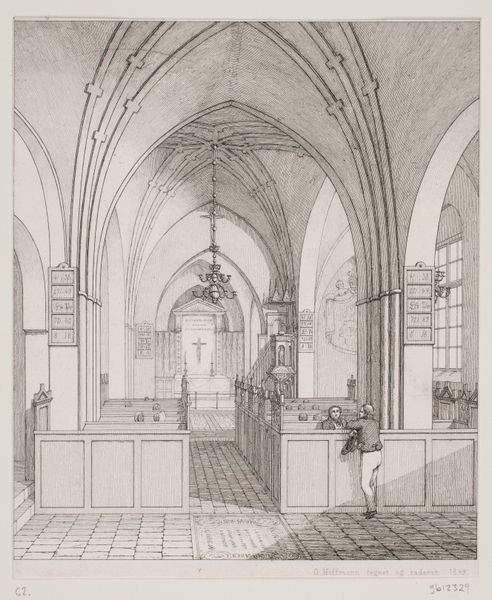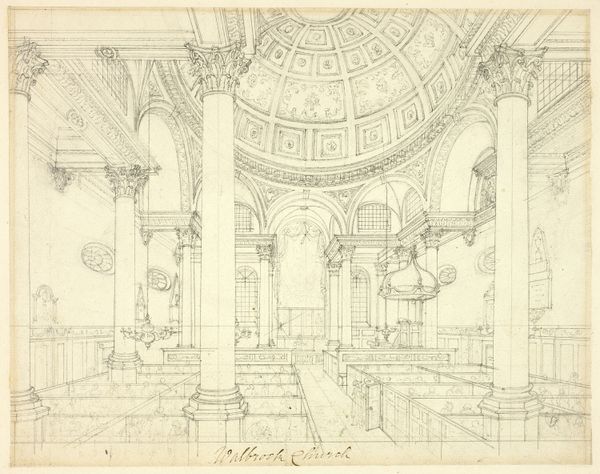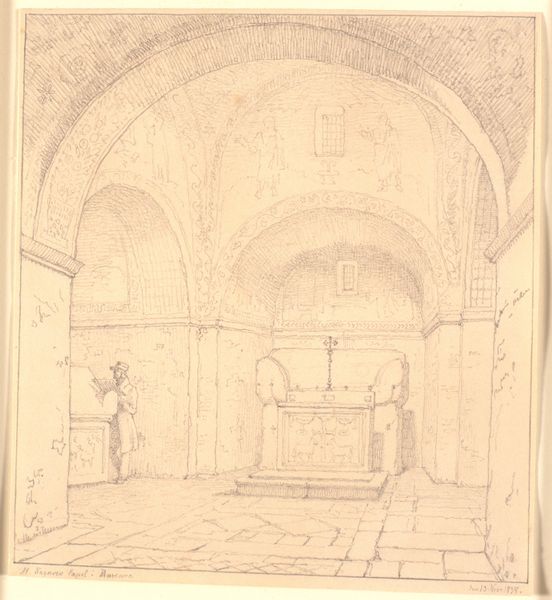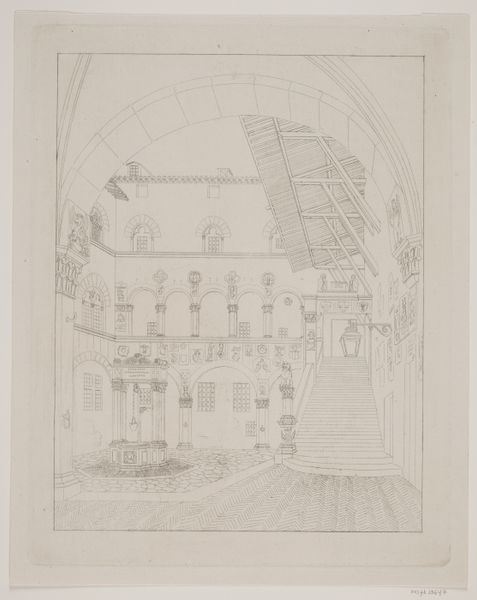
drawing, print, etching, pencil, architecture
#
pencil drawn
#
drawing
# print
#
etching
#
pencil sketch
#
etching
#
perspective
#
pencil drawing
#
geometric
#
pencil
#
line
#
pencil work
#
architecture
Dimensions: 198 mm (height) x 299 mm (width) (bladmaal), 184 mm (height) x 273 mm (width) (plademaal)
Curator: This is G.F. Hetsch's "Basilica S. Lorenzo," created in 1819. It's an etching, with pencil under-drawings visible, rendering the interior perspective of the Basilica. Editor: It feels incredibly precise, almost clinical. The lines are so delicate, they make the space seem vast and echoing. Curator: Indeed. Hetsch, a master of architectural representation, offers us a glimpse into not just the space, but his own meticulous process. Look at the variation in line weight. Editor: There’s a fragility in the marks. One almost wonders about the type of pencil used. The layering creates shadows and defines volumes with extreme subtlety. Were pencils even standardized at this point? The texture hints at this… Curator: Interesting! It’s easy to see the architecture, the Renaissance forms… I'm curious how he conceived this. Was this an etching after his own, quicker pencil sketch, or did he make a fully labored pencil under-drawing and simply transfer to a plate to burn away? Editor: My thinking goes straight to access and reproduction; creating multiple copies via etching would have been invaluable for disseminating architectural knowledge in 1819. It’s also striking how clean the scene is— no signs of everyday life. Only solemn monuments. The means to the end: for viewers, not for parishioners. Curator: Perhaps. It is fascinating to think of the drawing as a means of distribution – where labor and design converge! For me it speaks more to the poetics of geometry. He uses perspective almost to imply not only spatial extension, but to evoke something much more—dare I say the Divine, revealed via perfect mathematical relationship? Editor: Ha! Maybe, but to my eyes, it's about access. Making something exclusive—like masterful architecture—available and replicable through this intricate process. To think of how many iterations of drawing, labor, time went into the "original." Curator: In that case, "replicability" diminishes something essential to both our experiences and reminds us just how material architecture is. How often we overlook the brick-by-brick construction… Still, whatever it may be, there’s an undeniable power in these intersecting planes. Editor: Definitely a testament to the beautiful, and the often-overlooked ways of production!
Comments
No comments
Be the first to comment and join the conversation on the ultimate creative platform.
